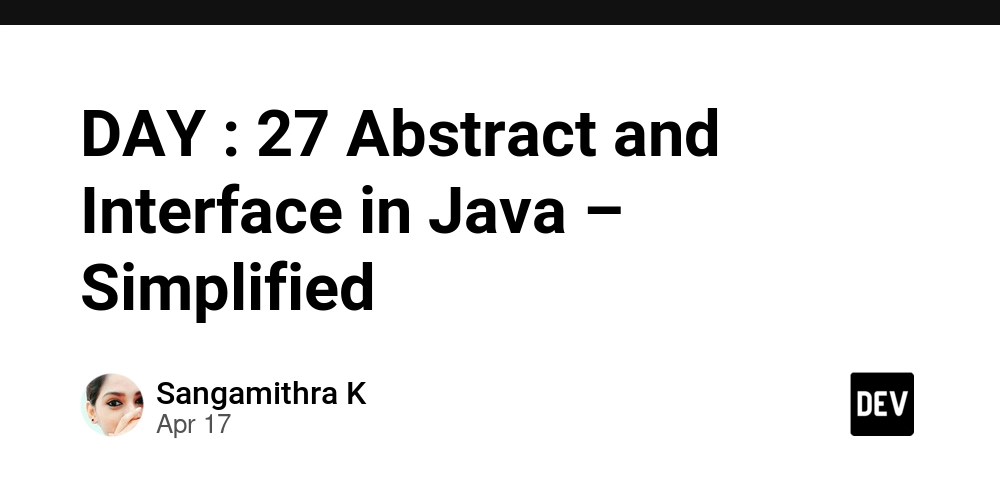Dev
1w
306

Image Credit: Dev
DAY : 27 Abstract and Interface in Java – Simplified
- Abstraction in Java is a fundamental concept in object-oriented programming (OOP) that hides implementation details and only shows essential features.
- Abstract classes may have methods without implementation and must be implemented by subclasses. By abstracting functionality, changes in the implementation do not affect the code that depends on the abstraction.
- Java provides two ways to implement abstraction: Abstract Classes (Partial Abstraction) and Interface (100% Abstraction).
- Interfaces fulfill two goals: They allow the programmer to be more abstract when referencing objects and enable multiple inheritance in Java.
Read Full Article
18 Likes
For uninterrupted reading, download the app